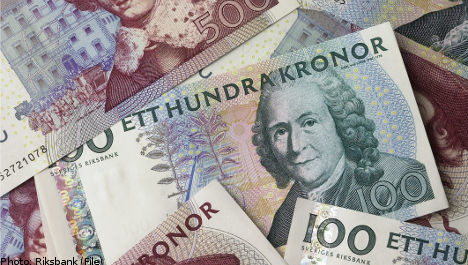“This is the most harmful tax of all,” Prime Minister Fredrik Reinfeldt told reporters during a Thursday press conference.
In a proposal, the government unveiled plans to lower corporate tax rates to 22 percent from the current level of 26.3 percent.
“We want to provide a stimulus for both small and large businesses,” enterprise minister Annie Lööf told reporters, according the Expressen newspaper.
The new lower rate, to be included in the government’s forthcoming autumn budget proposal and go in effect on January 1st, would bring Sweden’s corporate tax rates to a level below the EU average of 23.5 percent.
Around 8.8 billion kronor of the expected cost of the measure would be funded through tighter rules limiting interest payment deductions companies commonly claim on internal loans.
According to the government, the motivation for the cut is that Sweden’s current corporate tax rate, which is above both the EU and OECD average, puts the country at a competitive disadvantage.
“The significant reduction of the corporate tax is expected to strengthen the investment climate and growth in Sweden,” the government said in a statement.
“Because Sweden isn’t situated in the centre of Europe, it’s appropriate for our corporate taxes to be competitive.”
The government also proposed a deduction for investors that would increase access to capital for new and growing businesses.
The cost of the new deduction is expected to run 800 million kronor and be implemented on September 1st, 2013 at the earliest, as the proposal must first be approved by the European Commission.
News of the pending corporate tax cut was welcomed by Swedish business groups.
“In the difficult financial climate business owners face today, this is a real injection for all business owners,” Elisabeth Thand Ringqvist, head of the Swedish Federation of Business Owners (Företagarna), said in a statement.
“For those that have a hard time finding financing, the investors’ deduction offers an opportunity to find new capital and the lowering of corporate taxes makes it easier to reinvest profits in the country.”
TT/The Local/dl



 Please whitelist us to continue reading.
Please whitelist us to continue reading.
Member comments